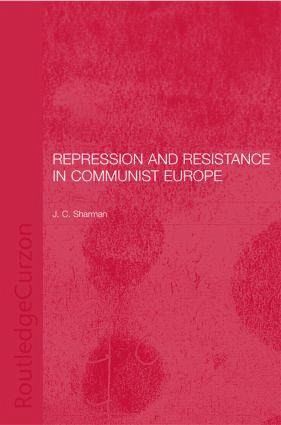
Repression and Resistance in Communist Europe
Versandkostenfrei!
Versandfertig in 1-2 Wochen
168,99 €
inkl. MwSt.
Weitere Ausgaben:

PAYBACK Punkte
84 °P sammeln!
This book explores the role of coercion in the relationship between the citizens and regimes of communist Eastern Europe. Looking in detail at Soviet collectivisation in 1928-34, the Hungarian Uprising of 1956 and the Polish Solidarity Movement of 1980-84, it shows how the system excluded channels to enable popular grievances to be translated into collective opposition; how this lessened the amount of popular protest, affected the nature of such protest as did occur and entrenched the dominance of state over society.














